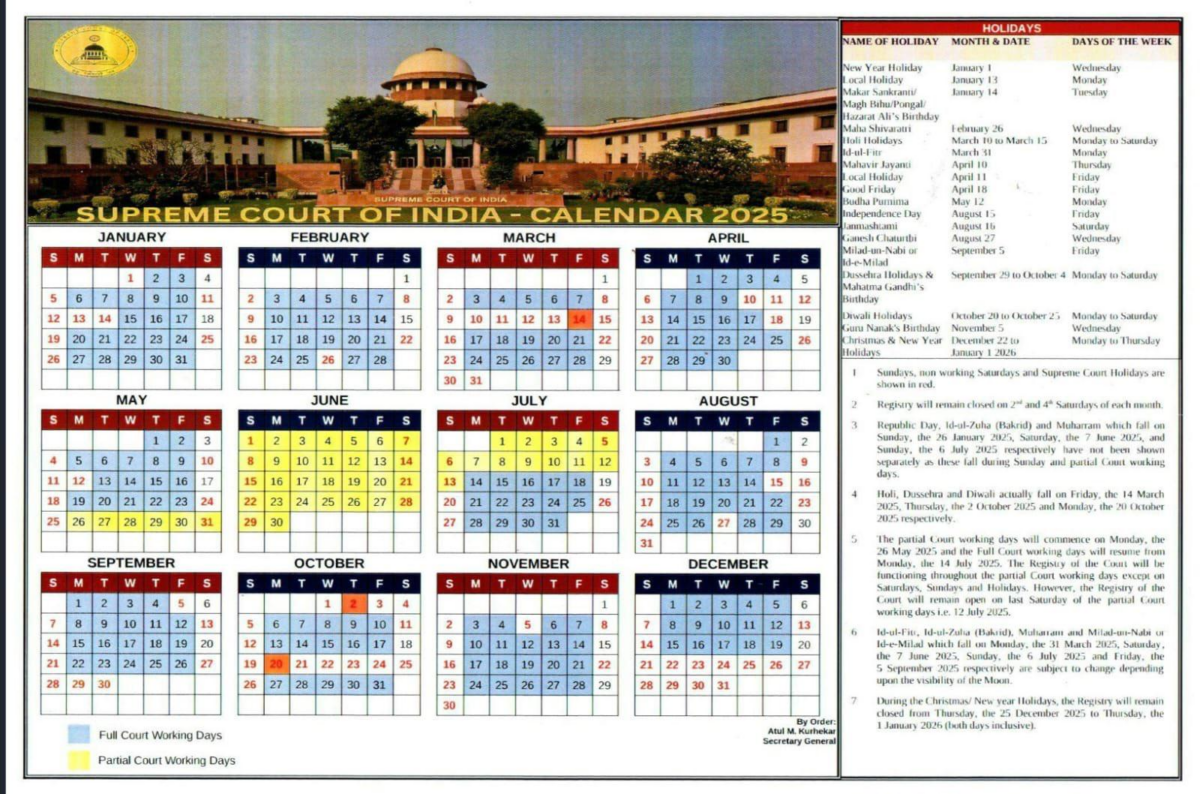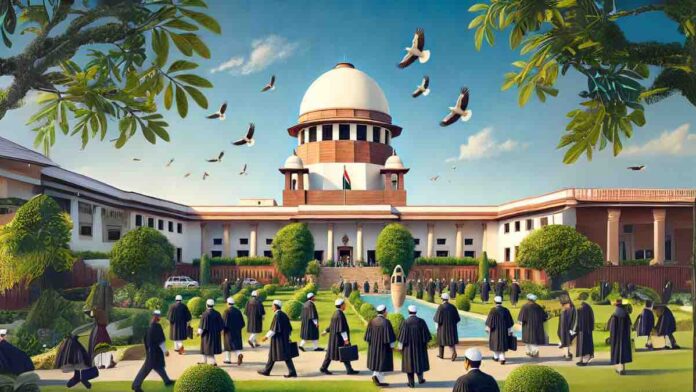The Supreme Court of India’s 2025 calendar outlines the court’s working days, holidays, and special observances. This guide provides an overview of the court’s schedule, including full court working days, partial court working days, and public holidays, ensuring lawyers, litigants, and court staff are well-prepared for the year ahead.

Key Observations in the 2025 Calendar
The calendar categorizes days into full court working days and partial court working days. Here’s a breakdown of the significant dates and policies:
1. Full Court Working Days: Represented in light blue, these days mark when the court operates fully. Most weekdays fall under this category, with exceptions for holidays and partial court days.
2. Partial Court Working Days: Highlighted in yellow, these days indicate that the court is open but with limited hours or services. The partial working days for 2025 primarily fall in the summer, with the court operating between May 26 and July 4. Full operations resume on July 7.
3. Public and Court Holidays: The court observes multiple holidays throughout the year, which are listed on the right side of the calendar. Notable holidays include:
– New Year: January 1
– Republic Day: January 26 (Sunday)
– Independence Day: August 15 (Friday)
– Gandhi Jayanti: October 2 (Thursday)
– Christmas & New Year Break: December 22 to January 1, 2026
Notable Extended Breaks and Policies
The Supreme Court observes several extended breaks, during which the court remains closed, allowing staff and members to observe festivals or national holidays:
– Holi Holidays: March 10–15 (Monday to Saturday)
– Dussehra Holidays: September 29 to October 4 (Monday to Saturday)
– Diwali Holidays: October 20–25 (Monday to Saturday)
– Christmas and New Year: December 22 to January 1, 2026 (Monday to Thursday)
In addition, certain holidays fall on weekends or coincide with other observances, ensuring a streamlined calendar for court operations.
Additional Guidelines and Observances
1. Registry Operations: The Supreme Court Registry will remain open on the 2nd and 4th Saturdays of each month, ensuring continuity for necessary filings and documentation.
2. Holidays with Observance Adjustments: For festivals that depend on lunar sightings, such as Eid-ul-Fitr, Eid-ul-Zuha, and Muharram, the court specifies that the dates may change according to the lunar calendar.
3. Observance on Non-Working Saturdays and Sundays: When a holiday coincides with a weekend or a Supreme Court holiday, no additional leave is granted.
4. December Holidays: During the New Year break, the registry will be closed from December 25 (Christmas) through January 1, with both dates inclusive.
This structured calendar ensures efficient time management for the Supreme Court while respecting significant cultural and national holidays. For those involved in legal proceedings or court operations, this guide serves as a crucial planning resource for 2025.




